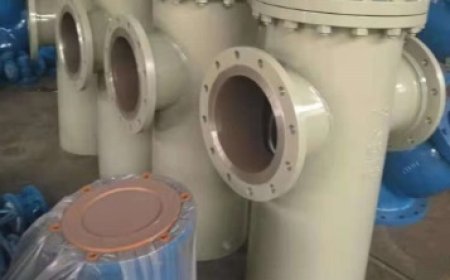What Are the Most Common Types of Dental Emergencies?
In Australia, accessing emergency dental care promptly can protect your oral health and prevent complications. Whether it’s a weekend, holiday, or late at night, knowing how to find an “emergency dentist near me open now” ensures you get the urgent attention you need.

Dental emergencies can happen at any time, often catching people off guard and causing significant pain and distress. Understanding the most common types of dental emergencies is essential, especially for those living in Australia, where access to emergency dental care might be limited outside regular hours. Knowing when to seek urgent help, including searching for an "emergency dentist near me open now," can make a significant difference in the outcome of the situation. This article explores the typical dental emergencies Australians face and how to respond appropriately.
1. Toothache or Severe Dental Pain
One of the most frequent reasons people seek emergency dental care is a severe toothache. This pain can stem from various causes, including tooth decay, infection, gum disease, or trauma. A toothache can worsen quickly, signalling an underlying infection that might spread if left untreated.
In many cases, the pain can be sharp, throbbing, or constant, affecting eating, sleeping, and everyday activities. If the toothache is accompanied by swelling, fever, or a bad taste in the mouth, it is critical to seek immediate dental attention. Emergency dentists can diagnose the root cause and provide pain relief and treatment to prevent complications.
2. Knocked-Out Tooth (Avulsed Tooth)
Accidents happen, especially to children or active adults. A knocked-out tooth is one of the most dramatic dental emergencies. If a tooth is completely dislodged from the socket, quick action can sometimes save it.
The best approach is to gently rinse the tooth with water (avoiding soap or chemicals) and attempt to place it back in the socket if possible. If that isnt feasible, keeping the tooth moist in milk or a saline solution is essential until you can reach an emergency dentist. Time is critical here, so searching for an emergency dentist near me open now can improve the chances of saving the tooth.
3. Broken or Chipped Teeth
Breaking or chipping a tooth is another common dental emergency, often caused by biting hard foods, falls, or sports injuries. The severity can vary from minor chips to significant breaks exposing the tooths nerve.
Even if the pain seems minimal, broken teeth should be treated promptly to prevent infection and further damage. An emergency dental care provider can smooth rough edges, restore the tooth with bonding or crowns, and provide pain management.
4. Lost Filling or Crown
Fillings and crowns protect damaged teeth from further decay and restore their function. Losing a filling or crown can expose the tooth to bacteria and sensitivity. This situation, though sometimes less painful initially, is considered an emergency because it increases the risk of infection and tooth damage.
If you lose a filling or crown, its advisable to contact an emergency dentist immediately. In the meantime, keeping the area clean, avoiding hard or sticky foods, and using over-the-counter dental cement (available at pharmacies) can offer temporary relief.
5. Abscess or Infection
A dental abscess is a pocket of pus caused by bacterial infection, often resulting from untreated cavities or gum disease. This is a serious condition that requires urgent attention. Symptoms include intense pain, swelling, fever, and a bad taste in the mouth.
An abscess can spread infection to other parts of the body if left untreated, so emergency dental care is critical. Dentists may need to drain the abscess, prescribe antibiotics, and address the infections source.
6. Soft Tissue Injuries
Emergencies are not limited to teeth; injuries to the gums, tongue, cheeks, or lips can also require immediate treatment. Cuts or tears inside the mouth may bleed heavily and pose infection risks.
If bleeding does not stop after applying pressure with a clean cloth or gauze, or if the injury is deep, visiting an emergency dentist is necessary. They can properly clean and stitch wounds to promote healing.
7. Loose or Displaced Teeth
Teeth can become loose or shifted due to trauma, grinding, or gum disease. A loose tooth, especially in adults, often signals damage to the supporting structures and requires prompt assessment.
Emergency dental care can stabilise the tooth and prevent it from becoming permanently lost. Delaying treatment may lead to the need for extraction.
8. Severe Bleeding
After dental procedures or trauma, some bleeding is expected, but excessive or prolonged bleeding is a dental emergency. It may indicate a clotting problem or injury to blood vessels.
If bleeding doesnt stop with pressure and persists beyond 20 minutes, it is essential to seek emergency dental help.
How to Find Emergency Dental Care in Australia
If you experience any of these dental emergencies, finding immediate help is crucial. Searching for an emergency dentist near me open now is a practical step to locate available dental clinics offering urgent care outside normal hours.
Many Australian cities have dedicated emergency dental clinics or hospital dental departments for after-hours assistance. Some private dentists also provide emergency appointments to relieve pain and address urgent issues.
Always keep the contact information of your local emergency dental services handy, so you can act quickly if needed.
In summary, dental emergencies can be painful, stressful, and potentially harmful if not treated promptly. Common types include severe toothaches, knocked-out or broken teeth, lost fillings or crowns, infections, soft tissue injuries, loose teeth, and severe bleeding. Understanding these emergencies helps you respond appropriately and seek the right care without delay. In Australia, accessing emergency dental care promptly can protect your oral health and prevent complications. Whether its a weekend, holiday, or late at night, knowing how to find an emergency dentist near me open now ensures you get the urgent attention you need. If you or a loved one faces a dental emergency, dont hesitatereach out to an emergency dental professional for swift and effective care. Your smile depends on it.




































![Play99 Login & Registration Guide for Indian Users [2025 Update]](https://www.atlantanewsplus.com/uploads/images/202507/image_140x98_6870c1df7bfcd.jpg)
